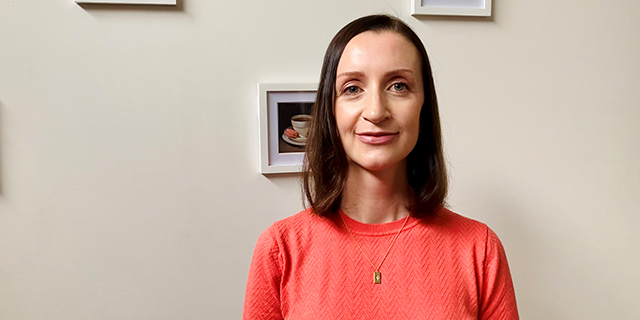Social and Affective Neurodevelopment (SAND)
-
Associate Professor

Sarah Whittle8344 1958
Research Overview
The Social and Affective Neurodevelopment group aims to characterise neurodevelopmental risk and resilience factors for common mental health problems in children and adolescents, particularly mental disorders such as depression and anxiety. An important aspect of the research is to incorporate a biopsychosocial approach, investigating whether and how a range of factors, particularly adverse environmental experience and puberty, influence and interact with neurodevelopment to confer risk for mental health problems.
Current Projects:
Adolescence to emerging adulthood (A2EA) study
The A2EA Study is a prospective longitudinal study that aims to address core questions regarding biological and environmental risk factors for the development of depression and other psychopathologies with common onset during adolescence and emerging adulthood. The study began in 2003 and involved the recruitment of ~250 early adolescents, selected to be at varying levels of risk for psychopathology based on their temperament. Participants were comprehensively assessed at ages 12, 14, 16 and 19 years using a multi-method multi-source battery of validated measures of psychopathology, brain structure/function, temperament, family processes, genetics, endocrine function and family history of psychopathology. A final follow-up of participants' mental health and functioning in their mid-late twenties has recently been completed.
The emotional learning and memory (ELM) study
The broad aims of this study are to: 1) examine neural differences between children, adolescents, and adults during fear extinction; 2) examine how sex moderates fear extinction across development; and 3) examine how individual differences in trait anxiety and (gonadal and adrenal) hormones influence fear extinction and its neural correlates. The results of this project will contribute increased knowledge about: a) the neurodevelopmental and hormonal underpinnings of anxiety; and b) how and why some individuals are particularly prone to anxiety disorders. The results of this study will inform the development of more targeted and effective treatments of anxiety disorders in young people.
Staff
- A/Prof Sarah Whittle, Principal Research Fellow
- Dr Elena Pozzi, Research Fellow
- Isabel Zwaan, PhD Candidate
- Djamila Eliby, PhD Candidate
- Sarah Manuele, PhD Candidate
- Kate Bray, MPsych/PhD Candidate, Research Assistant
- Divyangana Rakesh, PhD Candidate
- Carra Aven Simpson, PhD Candidate
- Reham Elzeiny, Honours Student
- Sylvia Lin, Research Intern
Funding
2019-2021: NHMRC ($970,000). Fear learning across development and sex. CIs: S Whittle, D Ganella, J Simmons, O Schwartz
2017-2020: NHMRC ($1,118,072). The Pubertal Onset of Mental Disorders and Early Substance Abuse. CIs: G Patton, L Degenhardt, L Mundy, J Carlin, S Sawyer, R Borschmann, N Allen, R Viner. AIs: E Stockings, F Jacka, F Rice, J Proimos, J Simmons, M Hickey, M Wake, S Whittle, T Olds
Research Publications
TOP 5 publications
Rakesh, D., Allen, N. B., & Whittle, S. Balancing act: Neural correlates of affect dysregulation in youth depression and substance use–A systematic review of functional neuroimaging studies. Developmental cognitive neuroscience, 2020; 100775. PubMed
Pozzi, E., Vijayakumar, N., Rakesh, D., & Whittle, S. Neural correlates of emotion regulation in adolescents and emerging adults: A meta-analytic study. Biological Psychiatry, 2020. PubMed
Whittle, S., Vijayakumar, N., Simmons, J.G., Dennison, M., Schwartz, O., Pantelis, C., Sheeber, L., Byrne, M.L., Allen, N.B. Role of Positive Parenting in the Association Between Neighborhood Social Disadvantage and Brain Development Across Adolescence. JAMA psychiatry, 2017; 74(8), 824-832. PubMed
Whittle. S., Lichter, R., Dennison, M., Vijayakumar, N., Schwartz, O., Byrne, M., Simmons, J.G., Yücel, M., Pantelis, C., McGorry, P., & Allen, N.B. Structural brain development and depression onset during adolescence: a longitudinal, prospective study. American Journal of Psychiatry, 2014; 171(5): 564-571. PubMed
Whittle, S., Simmons, J. G., Dennison, M., Vijayakumar, N., Schwartz, O., Yap, M. B., Sheeber, L., & Allen, N. B. Positive parenting predicts the development of adolescent brain structure: a longitudinal study. Developmental Cognitive Neuroscience, 2014; 8, 7-17. PubMed
Research Projects
For project inquiries, contact our research group head.
Faculty Research Themes
School Research Themes
Key Contact
For further information about this research, please contact Associate Professor Sarah Whittle
Department / Centre
Psychiatry , Melbourne Neuropsychiatry Centre
MDHS Research library
Explore by researcher, school, project or topic.